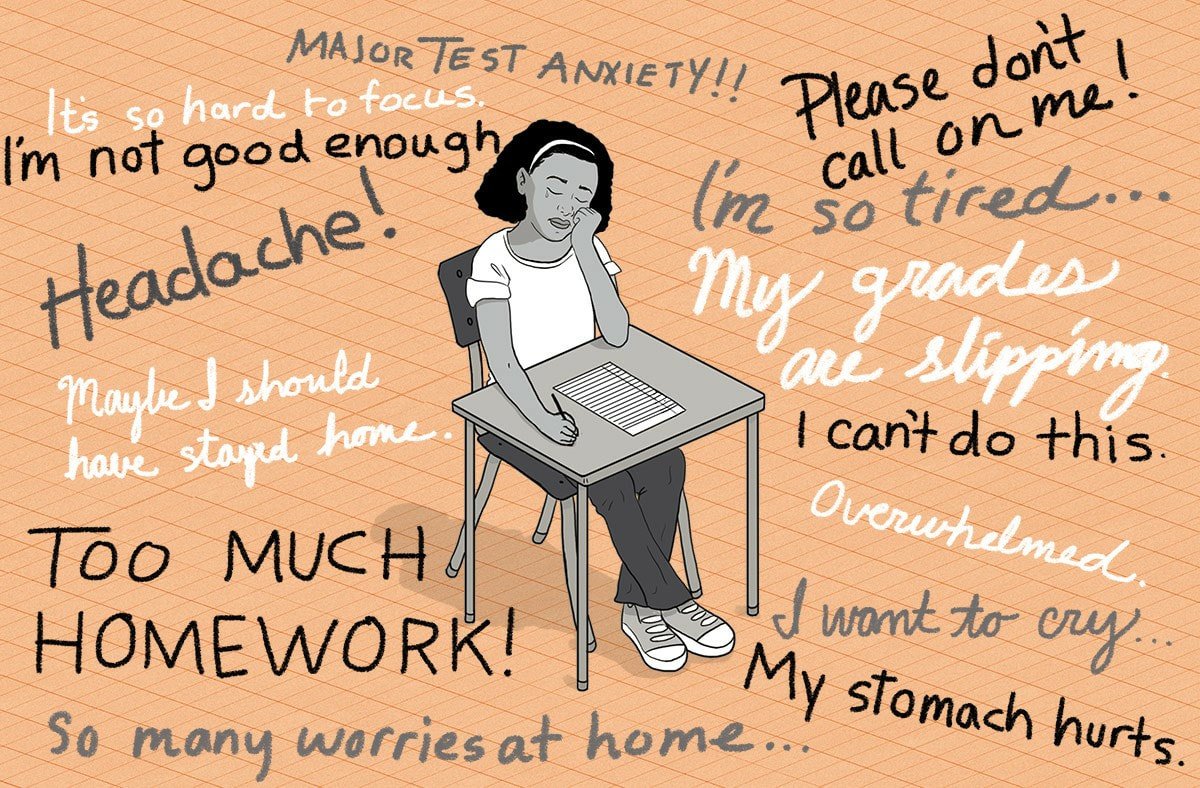We Need More Therapists In Our Schools!
Written by:
Taisa Grant
Providing Mental Health services to school students requires patience, consistency, and a therapist who recognizes they are “a passenger on their journey”. An effective therapist must show up to every session flexible and optimistic -- even when the youth is consistently resistant to talking, when all they want is to use your office as a retreat from the classroom -- the greater goal of supporting student success must always be in mind. A Better Way’s school-based therapists are striving to help youth become successful students, while addressing the impediments to their success.
I had the opportunity sit down and speak with two of our school-based clinicians, Helenia and Jorge. Both therapists offer services in middle schools in Alameda County, serving up to 25 students a year. During this meeting, I learned the value of providing mental health services to young people during school hours.
Clinicians working with youth between the ages of 11-14 are witness to a critical developmental moment in this young person’s life. According to an article on All Pro Dad The Top Five Problems Tweens Face are:
"The Awkward Phase: Their bodies feel out of control and so life is full of feelings of embarrassment. Then you have those who develop quicker or later than others, which breeds insecurity and instability.”
Changing Friendships: The relationships they had in elementary school start to change. Many kids experience having less and less in common with their childhood friends.”
“Living In A Culture Of Meanness: …In their angst caused by the uncertainty around them, they are looking to reacquire some sense of control. Putting down someone else or even bullying gives them a sense of the power they are lacking.”
“Alone In Groups: Due to the mean environment, middle school friendships are generally formed out of a need for protection. Their groups offer a safe haven, as long as the group is strong.”
“The Independence vs. Dependence Paradox: In the tween phase, kids move towards independence from their parents. However, they still crave the security and support parents offer.”
In addition to the typical tween problems as mentioned above, some youth may be dealing with Anxiety, PTSD, Depression, and problems at home. Having therapists on campus can create a more nurturing environment for the youth to process and prosper through the changes they might be experiencing and the challenges they face within their daily lives.
Based on our conversation, I gathered that we need more therapists on campus and a greater interest in nurturing the mental health of our youth. School-based therapists possess valuable insight into the challenges students face, that school staff and faculty may not have the time, training or expertise to address. Because therapists meet with students one-on-one each week, they get to see the young person as they truly are. They are “more intimately involved in their stress and triggers”; therapists are aware whether the parents are involved or not, which greatly influences a student’s success in school.
Additionally, according to an article in the Washington Post:
“…Children under stress have difficulty focusing on the curriculum and retaining what they learn. When schools address these kids’ emotional needs, train the staff to spot signs of trouble, and intervene early, students feel safe and secure in their learning environments. This, more than anything else, can help students thrive in school.”
Major Takeaway:
To my surprise, Jorge and Helenia report the youth have totally bought in to receiving therapeutic services. While students may not want to talk right away, they recognize their need for a safe place outside of the classroom, where they can be heard and just be themselves without judgement or punishment.
In schools, there is an expectation of youth to sit down, be quiet, listen and learn. What if that young person is struggling and keeping those feelings bottled up? “…We must prepare them with life coping and self-management skills and let them know it is okay to have space to take care of yourself.”
Therapy during school hours is a preventative resource that can help youth to grow and thrive -- not only in school, but also in life. Mental Health clinicians can also help to shift the culture of an entire school, making it a place where youth feel comfortable being themselves, knowing that the adults around them care about how they are doing.
Illustrated By: Our School Based Clinician Jorge Duarte This is a “Journey line”. It is a creative activity that helps clients open up. The way it works is you pick out important moments/memories and draw/write them down to give the client a narrative of their life. It shows growth and obstacles they overcame and how such events shaped them into who they are today.
“Journey Line” drawing by ABW Clinician Jorge Duarte


